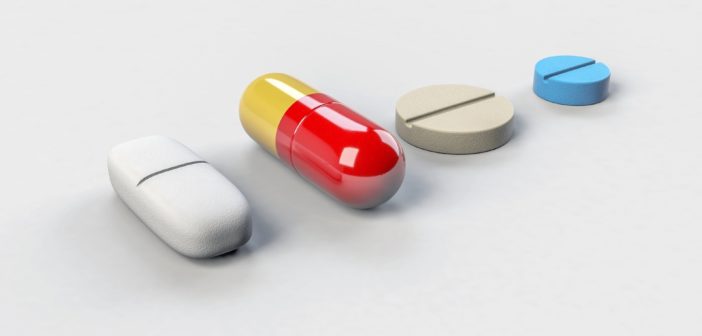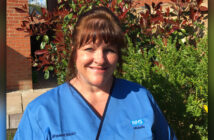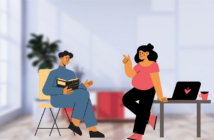Addiction treatment is the exact opposite of the disorderly and destructive state that addiction creates. The acceptance that treatment is necessary for addiction is a major step forward.
It is a significant step in the right direction whether you come to this realisation on your own after hitting rock bottom or your loved ones staged an intervention to seek treatment for you. It is at this point that your interest in self-help piques.
Participating in self-help programmes is one manner in which you can treat your addiction habits. The term “self-help behavioural treatments” refers to a broad category that includes any methods used to reduce or eliminate substance abuse and its harmful effects. Two essential characteristics of self-help are implicit in the definition: (1) the strategies are self-initiated and self-maintained, and (2) they do not involve sustained interactions with medical professionals, professional supervision or authority, or unauthorised use of prescribed medications.
Participation in a self-help group has been linked to a decrease in drug usage in studies. The positive impact of self-help groups is linked, among other things, to a shift in one’s social network. Participants make new abstinent companions and acquire new coping methods. This is founded on the idea that by helping others, you are also helping yourself. You become more involved in your recovery, gain social standing, and boost your self-esteem.
Examples of self-help programmes include:
- Secular recovery groups or Addiction recovery books.
- 12-step programmes such as Narcotics Anonymous (NA) or Alcoholics Anonymous (AA).
12-Step Programmes (Narcotics Anonymous (NA) or Alcoholics Anonymous (AA))
12-step programmes are a type of mutual support group and self-help programme that can be administered online or in a community. These therapies include structured programmes with behavioural, spiritual, and cognitive components. The Twelve-Step programme, which is akin to a collection of rules or commandments, was developed by the initial members of the Alcoholics Anonymous Society. The Twelve-steps are at the centre of this approach to personal rehabilitation.
However, if first-time attendees of these types of meetings are unwilling or unable to embrace or follow the Twelve Steps in their entirety, you are not required to do so immediately. In such situations, you will be asked to keep an open mind and begin to attend their meetings where you can learn from recovered alcoholics who will share their personal experiences in reaching sobriety. Also, such meetings will involve reading AA information and publications to help members understand the AA programme and concept.
Narcotics Anonymous (NA)
You may be curious about the nature of NA programmes and about who is welcome at their gatherings. Although Narcotics Anonymous (NA) was established to combat narcotics abuse and addiction, nowadays, its doors are open to anybody struggling with substance abuse. Originally, NA was a branch of AA (AA). Similar to Alcoholics Anonymous (AA), Narcotics Anonymous (NA) follows a 12-step programme to aid in recovery. NA members adhere to a set of principles and encourage one another to maintain sobriety.
Alcoholics Anonymous (AA)
Those who suffer from alcoholism can find support in a group called Alcoholics Anonymous. Meetings of Alcoholics Anonymous are free of charge. Anyone can join, regardless of age or level of knowledge. Everyone who is ready to do something about their drinking problem is welcome to join. These days, AA meetings can be attended in any major city in the UK or anywhere in the world. Going to your first AA meeting can be nerve-wracking and awkward, especially if you have no idea what to anticipate. Through these groups, you learn to come out of your comfort zone and acknowledge to a group of total strangers that you have a problem and are seeking assistance. Luckily, everyone else in AA can relate to how you feel.
Secular Recovery Groups
Relying on oneself and accepting responsibility are essential tenets of Secular Recovery. The concept advocates a sustainable path away from secular addiction. They believe that through self-empowerment, you can achieve sobriety. Abstinence must also be prioritised in this recovery process. Unlike AA, Secular Recovery is not based on any religious or spiritual principles.
Secular Recovery ideology focuses on replacing the bad “cycle of substance abuse” with the better “cycle of sobriety.” which consists of the following three components:
- Recognising a problem with alcohol or drugs.
- Admittance that you have a problem with alcohol or drugs.
- Establishing your sobriety as your first priority.
In Secular Recovery sobriety, daily rituals ensure that unhealthy habits are gradually replaced with more positive ones.
Self-Help Programme Vs Formal Treatment
The treatment you decide on to overcome addiction will profoundly impact your life. The reality is that a large majority of people struggling with addiction require professional help, which in some cases may require private rehab for a period of time. To begin, the withdrawal symptoms associated with some substances can be extremely dangerous. Lack of access to adequate care for dealing with psychological and physical impacts can be devastating and make the journey to recovery more complex.
The standard advice from addiction professionals is to take a team effort that prioritises clinical care. Self-help programmes remain strongly supported and integrated. When recovering addicts are ready to transition out of care, they will have a community of support to return to. Here are some things to note while you and your loved ones talk about potential treatments:
- There isn’t just one way to get better. The optimal course of action is a thorough and individualised treatment strategy.
- Those who are experiencing both substance abuse and mental health difficulties, such as post-traumatic stress disorder (PTSD), anxiety, or depression, need expert help.
- Professional aid and resources are especially useful for people in the early stages of recovery during detox.
- The formal treatment provides an option for those who are uncomfortable with the spiritual components of 12-step programmes.
- Those struggling with more than one mental health issue may benefit from inpatient programmes such as residential rehabilitation, peer support groups, dual diagnosis care, and other similar settings.
- Even though there isn’t much proof to back it up, it seems that a combination of self-help and professional treatment is the best way to get better.
Takeaway
Consistently engaging in 12-step programmes and other types of addiction support groups can be very helpful during your self-help addiction recovery process. In these communities, you can meet people who have experienced something similar and learn from their stories. Perspective and wisdom from those who have gone before you can help you better understand your experiences and how to navigate.
You can also help people just starting out by sharing what you have learnt during your recovery path. You can find the perfect self-help group for you by consulting with your addiction counsellor, asking friends, and conducting a preliminary search online.




